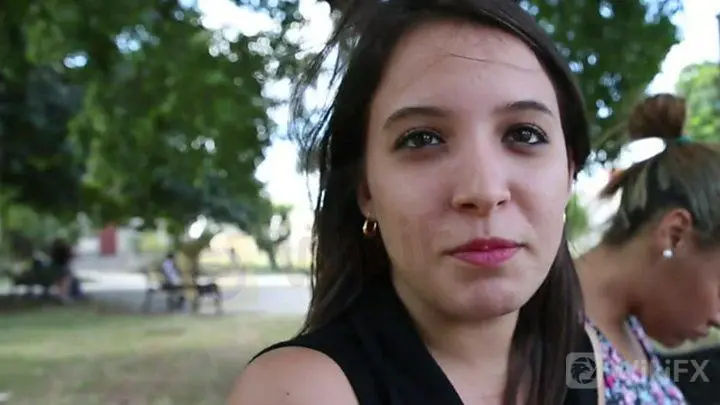简体中文
繁體中文
English
Pусский
日本語
ภาษาไทย
Tiếng Việt
Bahasa Indonesia
Español
हिन्दी
Filippiiniläinen
Français
Deutsch
Português
Türkçe
한국어
العربية
US bans cruise ship travel to Cuba amid new restrictions
Abstract:Image copyrightGetty ImagesImage caption The first US-to-Cuba cruise ship in decades docked in Havan
Image copyrightGetty ImagesImage caption
The first US-to-Cuba cruise ship in decades docked in Havana in May 2016
The US has announced a new ban on travel to Cuba for American group tours as well as cruise ship journeying to the island.
The move, which was announced by Trump administration officials, intends to roll back a US-Cuba thaw that began under President Barack Obama.
It is unclear exactly how the rules, which takes effect on Wednesday, will impact travel to the island nation.
US officials say the new rules seek to punish the country's communist regime.
US Treasury Secretary Steven Mnuchin said in a statement on Tuesday the measures come in response to Cuban efforts “to play a destabilising role in the Western Hemisphere, providing a communist foothold in the region and propping up US adversaries in places like Venezuela and Nicaragua by fomenting instability, undermining the rule of law, and suppressing democratic processes”.
“This administration has made a strategic decision to reverse the loosening of sanctions and other restrictions on the Cuban regime,” Mr Mnuchin said.
“These actions will help to keep US dollars out of the hands of Cuban military, intelligence, and security services.”
What happened to uprising against Maduro?
Venezuela crisis in 300 words
US tourism to Cuba is not permitted, but certain forms of organised group travel, known as “people-to-people” travel, had been allowed until Tuesday's announcement.
Commercial travel can continue, as long as the trips “broadly support family travel and other lawful forms of travel”, a US State Department spokesperson added, but other vessels such as private yachts or planes are banned.
Cruise ship companies have not yet reacted to the news, but Norwegian Cruise Lines tweeted to one concerned customer: We are closely monitoring these recent developments and any resulting impact to cruise travel to Cuba.
“We will communicate to our guests and travel partners as additional information becomes available.”
Cuban government statistics show that Americans have become the second largest group of visitors to the island, after Canadians - with more arriving by ship than plane.
Americans who have already booked “at least one travel related transaction” - such as purchasing a flight - will still be allowed to continue their travel, US officials say.
White House national security adviser John Bolton outlined plans for sanctions earlier this year, referring to Cuba, Venezuela and Nicaragua as a “troika of tyranny”.
In a tweet on Tuesday, he said the new rule means “ending 'veiled tourism' to Cuba”.
Skip Twitter post by @AmbJohnBolton
The Administration has advanced the President‘s Cuba policy by ending ’veiled tourism‘ to Cuba and imposing restrictions on vessels. We will continue to take actions to restrict the Cuban regime’s access to U.S. dollars. https://t.co/uwxd5qktKY
— John Bolton (@AmbJohnBolton) June 4, 2019
Report
End of Twitter post by @AmbJohnBolton
US backtracks on Cuba baseball deal
Cuban baseball defectors visit Havana
The baseball game that brought the US and Cuba closer
In a statement, US Commerce Secretary Wilbur Ross added: “Cuba remains communist, and the United States, under the previous administration, made too many concessions to one of our historically most aggressive adversaries.”

Media caption Life after Castro - 'We have to continue the revolution'
Cuban Minister of Foreign Affairs Bruno Rodríguez Parrilla, who travelled to Washington in 2015 to re-open the Cuban embassy, criticised the latest move as “an attack on international law”, adding that it was “aimed at suffocating” the country's economy.
Skip Twitter post by @BrunoRguezP
I strongly reject new sanctions announced by #US vs. #Cuba which further restrict #US citizens' travels to Cuba, aimed at suffocating the economy & harming the living standards of Cubans in order to forcefully obtain political concessions. Once again they will fail.
— Bruno Rodríguez P (@BrunoRguezP) June 4, 2019
Report
End of Twitter post by @BrunoRguezP
The White House announced in April that Cuban-Americans and US businesses could sue companies who use or own property that was seized from Americans during the 1959 Cuban Revolution.
Disclaimer:
The views in this article only represent the author's personal views, and do not constitute investment advice on this platform. This platform does not guarantee the accuracy, completeness and timeliness of the information in the article, and will not be liable for any loss caused by the use of or reliance on the information in the article.
WikiFX Broker
Latest News
ASIC Sues Binance Australia Derivatives for Misclassifying Retail Clients
Geopolitical Events: What They Are & Their Impact?
Top 10 Trading Indicators Every Forex Trader Should Know
WikiFX Review: Is FxPro Reliable?
Malaysian-Thai Fraud Syndicate Dismantled, Millions in Losses Reported
Trading frauds topped the list of scams in India- Report Reveals
Why Do You Feel Scared During Trade Execution?
Revolut Leads UK Neobanks in the Digital Banking Revolution
Fusion Markets: Safe Choice or Scam to Avoid?
SEC Approves Hashdex and Franklin Crypto ETFs on Nasdaq
Currency Calculator


